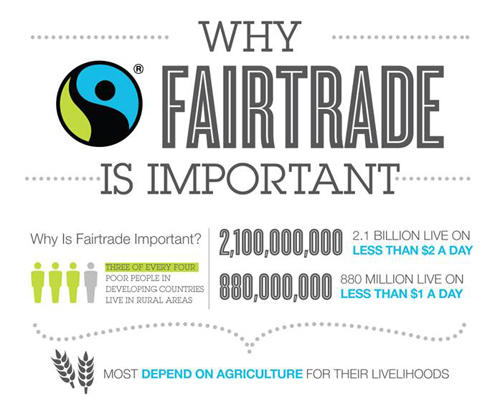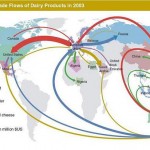
PIK & Fair Trade 2
This blog post referres to the previous blog – PIK & Fair Trade 1.
Through the project, PIK aims the greatest achievement in Fair Trade – contributes to improve economy in Kenya
What is Fair Trade?
According to the WFTO, “Fair Trade is a trading partnership, based on dialogue, transparency and respect, that seeks greater equity in international trade. It contributes to sustainable development by offering better trading conditions to, and securing the rights of, marginalized producers and workers”(1).
Why Fair Trade?
Whilst trade highlights the need for change in the rules and practice of conventional trade it shows countries that a successful business can result in providing better lives for the local people (1). PIK aims to support underprivileged Kenyan women’s lives and contributes to develop Kenyan economy through improving trade – in order for Kenyan women to have better employment opportunities.
Whilst trade is seen as one of great tools to bring benefits in trade countries, including developing countries, from another perspective, trade is being bias with a reason that its rule is unfair for developing countries.
Some developing countries often do not meet the benefits of the global trade, rather they face difficulties in keeping themselves to be parts of the global trade.
Countries where do not meet the benefits of the global trade include countries where;
*without the necessary infrastructure (eg. no land suitable for growing crops),
*without natural resources, or
*with large populations
– these realities in developing countries show off to the global trade partners, developed countries, developing countries’ lack of ability in investing, growing their industries and difficulty to attract foreign investment.
In addition, while infrastructures are lacked in a country, it means that the country only can export raw materials not finished products. Exporting raw materials can only invest lower return than finished products (2).
For example, Kenya is now trying to export greater number of maize as crops of maize are expected to grow larger in next years, according to the climate change (3).
However as demand for maize, raw materials increase, more local Kenyan people would suffer from forced horrific working condition with low pay, longer labour hours and exploitative labour environments – indeed, those local Kenyan people who would suffer from the forced labour would more likely be those the poorest people already struggling to survive in poverty in rural areas, which mainly are women and children.
This explains that even a developing country export s greater numbers of raw materials to the global trade partners, the poorest parts and people of the country, would still face difficulties in developing the economy and improving to meet the basic needs of their livings.
Further, the Free Trade agreements which enable parties in trade countries to enter into legally binding commitments to liberalise access to each other’s markets for goods and services, and investment (4)- only negatively impacts on developing countries as the developing countries cannot keep up with competition of the global marketplace.
While industrialised countries are able to produce larger quantities of finished products and export them to the global markets with lower costs, developing countries are no longer able to compete in the global trade – in return, this practice often pushes developing countries out of the global trade markets – leads developing countries to rely on imports and be affected by sudden price rises.
The unaffordable practice of the global trade can only push developing countries more behind from the global economy development.
This is why we need FAIR TRADE, not FREE TRADE.
1 WFTO, what is Fair Trade? (2009): http://www.wfto.com/index.php?option=com_content&task=view&id=1&Itemid=13
2 World Vision Australia, Our guilty pleasure: exploitative child labour in the chocolate industry: PDF (2011)
3 ACDI_VOCA, Kenya – Kenya Maize Development Program (KDMP) (2014): http://www.acdivoca.org/site/ID/kenyaKMDP
4 Australian Government_ Department of Foreign Affairs and Trade, About Free Trade Agreements (2014): http://www.dfat.gov.au/fta/




